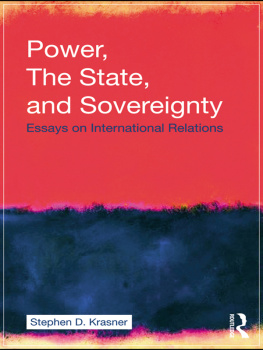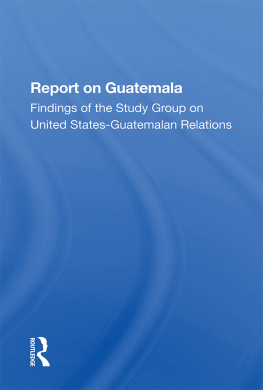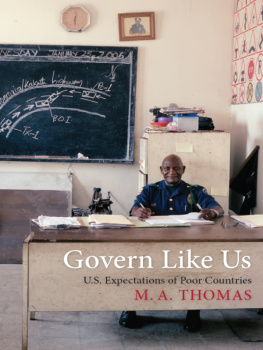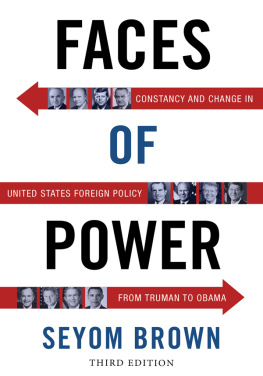The Foreign Policies of the French Left
Other Titles in This Series
Corrmunism and Political Systems in Western Europe, edited by David E. Albright
The Spanish Political System: Franco's Legacy, E. Ramon Arango
Ideology and Politics: The Socialist Party of France, George A. Codding, Jr., and William Safran
Westview Special Studies in West European Politics and Society
The Foreign Policies of the French Left edited by Simon Serfaty
A series of seminars held in the winter of 1977-78 at the Washington Center of Foreign Policy Research, Johns Hopkins School of Advanced International Studies, provided the basis for the material collected in this book. At the time of the seminars, a victory of the Left in the March 12 and 19 elections was being widely predicted, and the authors were encouraged to speculate on the probable foreign policy implications for France should that victory be realized. The Left did not sweep the elections as predicted, but these revised and updated essays remain valuable, first because of the constraints that a nearly even distribution of political forces imposes on the existing majority, and second because future Leftist participation in the French government will undoubtedly lead to a renewal of such speculations in the years ahead.
Simon Serfaty provides an overview of the domestic situation in France since Valery Giscard d'Estaing became president in 1974, and the following chapters successively deal with the Left's outlook on Europe, the Atlantic Alliance, and the Third World. The book ends with an examination of the impact the French Left has had and may continue to have on Eastern communism.
Simon Serfaty is associate professor of international relations and director of the Washington Center of Foreign Policy Research, Johns Hopkins School of Advanced International Studies.
The Foreign Policies of the French Left
edited by Simon Serfaty
First published 1979 by Westview Press, Inc.
Published 2019 by Routledge
52 Vanderbilt Avenue, New York, NY 10017
2 Park Square, Milton Park, Abingdon, Oxon OX14 4RN
Routledge is an imprint of the Taylor & Francis Group, an informa business
Copyright 1979 Taylor & Francis
All rights reserved. No part of this book may be reprinted or reproduced or utilised in any form or by any electronic, mechanical, or other means, now known or hereafter invented, including photocopying and recording, or in any information storage or retrieval system, without permission in writing from the publishers.
Notice:
Product or corporate names may be trademarks or registered trademarks, and are used only for identification and explanation without intent to infringe.
Library of Congress Catalog Card Number: 79-53137
ISBN 13: 978-0-367-29222-5 (hbk)
Contents
(Simon Serfaty)
(Michael M. Harrison)
(J. William Friend)
(Ronald Tiersky)
(Pavel Machala)
The essays included in this volume were written for a series of seminars which took place at the Washington Center of Foreign Policy Research of the Johns Hopkins School of Advanced International Studies. Held at a time when a victory of the Left was widely expected in the legislative elections of March 12 and 19, 1978, the series reflected the Center's continuing interest in the changing international environment of American foreign policy. As it is well known, such predictions did not come to pass. Yet, these essays, revised and updated, remain eminently useful for reasons which should become all too evident in the pages that follow.
The authors are very appreciative of the numerous constructive comments made by all those who participated in our seminars. We are also indebted to Sharon Bourne Newman who prepared the manuscript with her usual typing skill and professional diligence.
Simon Serfaty,
Director, The Washington Center
of Foreign Policy Research,
School of Advanced
International Studies
SIMON SERFATY is an Associate Professor of International Relations and Director of the Washington Center of Foreign Policy Research at Johns Hopkins School of Advanced International Studies. His most recent book After Thirty Years: A Fading Partnership? will appear later this year.
MICHAEL M. HARRISON is an Assistant Professor of European Studies at the Johns Hopkins School of Advanced International Studies, He has recently completed a book entitled The Reluctant Ally: France and the Atlantic Alliance ,to be published shortly, and is currently collaborating with Dr. Serfaty on a study of the security perspectives of the left in France and Italy funded by the Ford Foundation.
J. WILLIAM FRIEND, now retired, was a senior analyst with the Central Intelligence Agency. He has written widely on the French Communist Party and is currently working on a book about Italian foreign policy.
RONALD TIERSKY is an Associate Professor of Political Science at Amherst College. The author of French Communism, 1920-1974 , he is currently working on a study of democratic centralism and Eurocommunism which should be published in 1980.
PAVEL MACHALA is an Assistant Professor of Political Science at Amherst College. Having recently published an article, "Eastern Europe, Eurocommunism and the Problems of Detente" in Many Faces of Communism , ed. Morton Kaplan, he is completing a new book, Marx on International Political Economy .
1
The Fifth Republic under Valery Giscard DEstaing
Simon Serfaty
Political games in France abound once again. On the side of the government, a declining Gaullist party--still the majority of the majority--emerges as President Giscard d'Estaing's most vociferous critic, even while refusing adamantly to heed Michel Debr's call to enter into the opposition. On the side of the opposition, a declining Communist Party (PCF)--now the minority party of the minority--focuses its harshest criticism on its Socialist ally (PS), even while it continues to proclaim its faith in the Union de la Gauche . Already without a program worth fighting for, the Union finds no integrated program it can fight against either, as the majority's "programme de Blois" of January 1978 is equally forgotten. Accordingly, the Socialists and the Communists actively consolidate their defeat of March 1978, adding bitter internal quarrels to the many conflicts that separate them. Similarly, however, the Gaullists and the Giscardistes reserve their sharpest barbs for each other: as Jacques Chirac warns against the "foreign party" which, through its support for Europe, promotes the economic subjugation and the international impotence of France, Giscard's spokesman bemoans the irresponsibility of those whose excessive ambitions and absurd tactics help revive anti-German xenophobic tendencies and other old demons.though, the barons of the PCF and of the PS limit their "great debates" to whether dissent within the former should express itself in the pages of L'Humanit or Le Matin , or whether former divisions within the latter represent "factions" or "tendencies." Poor Left, poor Right, poor France: where in 1977-1978 the struggle was over projects of society, it is, in 1979-1980, over semantics and timetable.
I
The erosion of the majority, as shaped by de Gaulle and preserved by Georges Pompidou, was expected under Giscard. If in the sixties Gaullism effectively found in the enlargement of the Cold War cage some room for a national role in the grandes affaires , it sought less successfully at home a framework within which a similar nonpartisan consciousness might actually permit a consensus over domestic policies as well. Initially, of course, such a consensus could easily be generated by de Gaulle himself. The Good General and the General Good were for France one and the same, linked by the "great people brought together" against the discredited political parties, including the Gaullist party itself, one which de Gaulle tolerated rather than led. In those days, the Fifth Republic was neither a regime nor a constitution, but a man, as many observers noted. But with de Gaulle's withdrawal in early 1969, and his replacement by a dauphin chosen the previous summer when Pompidou's dismissal had promoted him as a credible substitute, the Fifth Republic became dependent on a political party l'Etat UDR --which promptly built a partisan consciousness that found the opposition at its nadir at the 1969 presidential elections.














